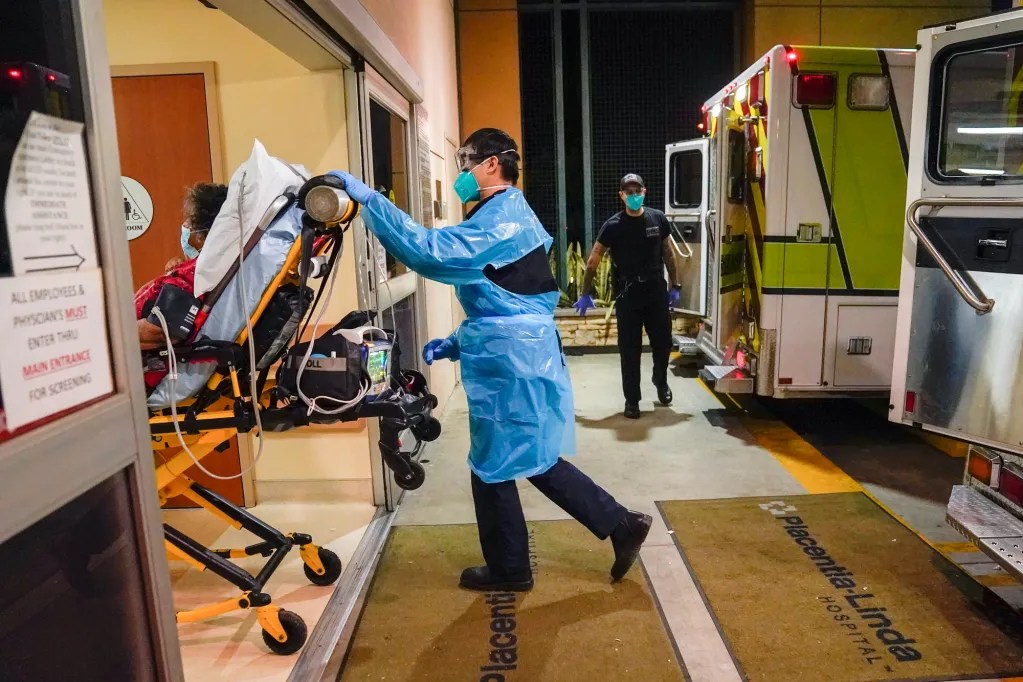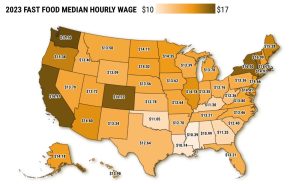BY RYAN SABALOW | CalMatters
A bill that would increase penalties for those who assault hospital emergency department workers is facing the same pushback that other recent tough-on-crime legislation has from progressive Democrats leery of increasing incarceration rates.
Before becoming a member of the California Assembly, Freddie Rodriguez spent 30 years as an emergency medical technician in the San Gabriel Valley. He’s wheeled untold numbers of patients on gurneys into hospital emergency departments.
And he’s seen all too often what happens when one of them tries to hurt caregivers. In fact, it recently happened to his daughter, Desirae, a respiratory technician. He told the Senate Public Safety Committee on Tuesday that she was recently assaulted on the job.
“This violence is unacceptable,” Rodriguez testified. “But for many of the health care heroes, they view workplace violence as just part of the job.”
The issue prompted Rodriguez to introduce Assembly Bill 977, which would increase penalties to a year in jail for those convicted of assaulting California’s hospital emergency room doctors, nurses and other workers. But the bill has an uncertain future due to resistance from progressive Democrats who, for the past decade, have sought to shrink the numbers of inmates in its crowded jails and prisons. Indeed, former Gov. Jerry Brown, who faced a U.S. Supreme Court order to shrink the state’s prison population, vetoed an identical bill from Rodriguez in 2015.
Those tensions were on display when the bill narrowly passed the Senate Public Safety Committee earlier this week.
The safety committee’s liberal Democratic senators from the San Francisco Bay Area, Scott Wiener and Nancy Skinner, opposed the legislation. They sided with the California Public Defenders Association and prison-reform advocates who argue that increasing criminal penalties doesn’t deter crime and who say laws on the books already prohibit assault
Former Gov. Brown made a similar argument in his 2015 veto message.
“If there were evidence that an additional six months in county jail … would enhance the safety of these workers or serve as a deterrent, I would sign this bill,” Brown wrote. “I doubt that it would do either.”
At this week’s hearing, the bill’s opponents also argued that many of the attacks in emergency departments are from patients having mental-health crises.
“We realize now that because of the lack of mental-health resources …ERs are where people who are having a crisis of mental health are brought,” Skinner said. “And punishments like this are not deterrents for people who can use no judgment.”
Skinner, however, didn’t vote on the bill, which counts the same as voting “no.” When Rodriguez’s bill passed the Assembly earlier this year, 12 members – most of them progressive Democrats who’ve been leery of increasing criminal penalties – didn’t vote. As CalMatters has reported, lawmakers regularly avoid voting on controversial bills to avoid angering colleagues or to eliminate a record of their opposition on sensitive matters. There is no distinction for legislators who abstain or are absent.
Assemblymember Freddie Rodriguez addresses other lawmakers during a floor session at the state Capitol in Sacramento on April 4, 2024. Photo by Fred Greaves for CalMatters
Related Articles
Farmworkers face high-risk exposures to bird flu, but testing isn’t reaching them
Hyundai, suppliers in Alabama sued over alleged child employment
Disneyland will work with union representing character performers
California advances measures targeting AI discrimination and deepfakes
‘Hush trip’ hideouts: Where to go for your next remote work vacation
Wiener cast the lone “no” vote in the five-member committee. The influential California Medical Association, representing the state’s physicians, supported the bill. The opposition from Skinner and Wiener represented a significant break from the association’s positions on legislation. Skinner has historically sided with the doctors’ group 80% of the time; Wiener 86%, according to an analysis from CalMatters Digital Democracy database.
Murrieta Republican Sen. Kelly Seyarto, who has historically aligned with the California Medical Association only 45% of the time, was firmly on the doctors’ side this time around.
He’s a former battalion chief with the Los Angeles County Fire Department, who has seen his share of violent medical calls.
He told his committee colleagues that the legislation is “long overdue.”
“I know personally a nurse that was disabled, (after) she was attacked and thrown to the ground,” Seyarto said. “She had a head injury and she could never go back to work. She could never go back to work. And the person that did that, there was nothing mentally wrong with them. He was just mad.”












